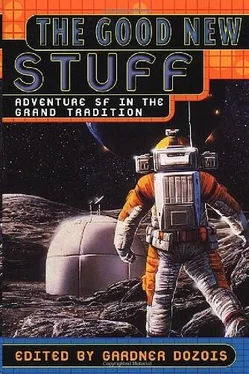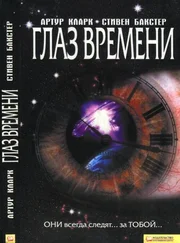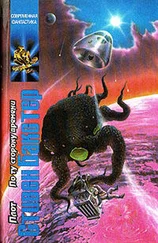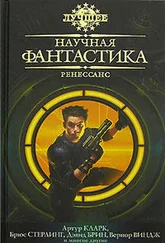Стивен Бакстер - The Good New Stuff
Здесь есть возможность читать онлайн «Стивен Бакстер - The Good New Stuff» весь текст электронной книги совершенно бесплатно (целиком полную версию без сокращений). В некоторых случаях можно слушать аудио, скачать через торрент в формате fb2 и присутствует краткое содержание. Год выпуска: 2002, ISBN: 2002, Издательство: St. Martin's Griffin, Жанр: Фантастика и фэнтези, на английском языке. Описание произведения, (предисловие) а так же отзывы посетителей доступны на портале библиотеки ЛибКат.
- Название:The Good New Stuff
- Автор:
- Издательство:St. Martin's Griffin
- Жанр:
- Год:2002
- ISBN:0-312-26456-9
- Рейтинг книги:3 / 5. Голосов: 1
-
Избранное:Добавить в избранное
- Отзывы:
-
Ваша оценка:
- 60
- 1
- 2
- 3
- 4
- 5
The Good New Stuff: краткое содержание, описание и аннотация
Предлагаем к чтению аннотацию, описание, краткое содержание или предисловие (зависит от того, что написал сам автор книги «The Good New Stuff»). Если вы не нашли необходимую информацию о книге — напишите в комментариях, мы постараемся отыскать её.
The Good New Stuff — читать онлайн бесплатно полную книгу (весь текст) целиком
Ниже представлен текст книги, разбитый по страницам. Система сохранения места последней прочитанной страницы, позволяет с удобством читать онлайн бесплатно книгу «The Good New Stuff», без необходимости каждый раз заново искать на чём Вы остановились. Поставьте закладку, и сможете в любой момент перейти на страницу, на которой закончили чтение.
Интервал:
Закладка:
Tentative description: Highly intelligent, highly evolved, motile plant species.
We always wondered about aliens and now we've got one. What does he eat? Fertilizer? Or does that snout work like a Venus fly trap?
The small amounts of iron in the vessel— tank linings and a few hand tools— argued a metal-poor environment, ruling out any Sol-system planet as a world of origin.
As if they needed ruling out!
The ceramic lining of the jet would require longer evaluation but appeared to be of an unfamiliar crystalline macro-structure. All the other parts of the vessel, including the hull, were timber. There was nothing unusual about the composition of the various woods but a great deal unusual about the treatments they had undergone, presumably for hardening and strengthening; no description of these could be hazarded without closer examination. (There followed a dissertation on the possible technology of a timber-based culture. Musad skipped over it.)
Dating procedures were at best tentative on materials whose isotopic balance might not match Terrene counterparts, but guesstimates gave a pro tem figure of between seven and ten thousand Terrene years. The signatories declined to draw any conclusions as to the age of the vegetal pilot or where he might have originated.
And all it does is sit there, sit there, sit there, occasionally moving a tentacle in some unguessable activity. So: What next?
He was taken by an idea so absurd that it would not go away, an idea which might, just might stir the creature into some action. It was a sort of "welcome home" idea— rather, an introduction…
He called the Projection Library.
Fernix slept and woke while the deceleration held him comfortably in his seat. He slept again and woke, nerves alert, when deceleration ceased.
He opened a tiny vision hole but saw only his prison still closed around him.
Shortly there was a perceptible forward motion and the slightest of centrifugal effects as the direction changed several times. Then his captor ship settled, gently for so large a transport. His pod shook momentarily and was still.
Suddenly there was gravity, not much of it but enough to aid balance and movement.
Not that he had any intention of moving; he could not afford movement. He needed energy. Food alone was not enough; his thousands of chloroplasts needed sunlight for the miracle of conversion to maintain body temperature, muscle tone, even the capacity to think effectively. There was a spectrum lamp aboard but its batteries would operate for only a limited time; a pod was not intended for pan-galactic voyaging.
Yet full alertness could be demanded of him at any moment; he must pump his body resources to a reasonable ability for sustained effort. He used a third of the lamp's reserve, switched it off and continued at rest in the pilot seat.
There was little assessment he could make of his position. His captors had demonstrated no technological expertise (beyond a squandering of metal) which could not have been duplicated on the Home World, nor had they attempted to harm him. So they were civilized beings, reasonably of a cultural status with which he could relate.
On the panel, radiation detectors flickered at low power. He was, he guessed, being investigated. So, this race was able to operate its instruments through the metal hull outside. That proved little; a race evolving on a metal-rich world would naturally develop along different lines of scientific interest from one grown from the forests of Home. Different need not mean better.
It was an exciting thought, that on another world a people had emerged from the nurturing trees to conquer the void of space.
The thought was followed by another, more like a dream, in which his people had traversed the unimaginable distance between stars to colonize this faraway system, facing and overcoming the challenges of worlds utterly variant from their own, inventing whole new sciences to maintain their foothold on the universe.
The open-minded intelligence can contemplate the unfamiliar, the never conceived, and adapt it to new modes of survival.
He had arrived by freakish accident; could not his people have made the crossing during the eons while he crept through space in free fall? The idea of using Transformation for survival while a ship traversed the years and miles had been mooted often.
His reverie was broken by a squealing hiss from outside the pod.
Outside. They were supplying his prison with an atmosphere.
Chemist Megan Ryan was the first to curse Musad for mishandling the approach to the alien ship. Suited up and ready to examine the hull, she heard someone at the closed-circuit screen ask, "What the hell's going on? They've let air into the scow."
She clawed the man out of the way and punched Musad's number to scream at him, "What do you think you're bloddy well doing?"
"And who do you think you're talking to, Captain-Specialist?"
She took a deep, furious breath. "To you… sir. Who ordered air into the scow?"
"I did." His tone said that if she objected, her reason had better be foolproof.
"But why, why, why?" She was close to stuttering with rage.
His administrative mind groped uneasily at the likelihood of an error of unscientific judgment and decided that this was not a moment for discipline. "To provide air and temperature for the investigating teams to work in. What else?"
She swallowed, conscious of a red face and tears of frustration. "Sir, that ship has been in space for God only knows how long, in the interstellar deep. Its timber hull will have collected impact evidence of space-borne elements and zero-temperature molecules. That evidence will by now have been negated by temperature change and highly reactive gases. Knowledge has been destroyed."
She was right and he would hear about it later from higher echelons; he simply had not thought from a laboratory standpoint. "I'm sorry, Meg, but my first priority for investigation is the traveller rather than the ship. He represents more urgent science than a little basic chemistry."
The wriggling was shameful and he knew it; he had forgotten everything outside the focus of his own excitement, the alien.
She was glaring still as he cut her off.
He spoke to the Library: "Have you got much?"
"A good representative selection, sir. Vegetable environments from different climates. As you requested, no human beings."
"Good. I don't want humans presented to him in stances and occupations he— it— won't understand. Get a computer mockup ready— a naked man, good physique, in a space suit. Set it up so that the suit can be dissolved from around him. I want a laboratory effect, emotionally distancing, to reduce any 'monster' reaction."
"Yes, sir," the screen murmured.
"He's put out a probe of some sort," said another screen. "Sampling the air maybe."
Musad turned to screen 3 and the alien ship. The temperature in the hold had risen to minus thirty Celsius and vapor was clearing rapidly from the warming air. Visibility was already good.
When the air reached normal temperature and pressure for their planet, Fernix reasoned, they would come for him.
They did not come, though temperature and pressure levelled off. He was disappointed but accepted that there would be circumstances which he could not at present comprehend.
He extended a hull probe for atmosphere analysis, to find the outside pressure very low while the water vapor content hovered at the "dry" end of the scale and the carbon dioxide reading was disturbingly light. He could exist in such an atmosphere only with difficulty and constant re-energizing. Acclimatization would take time.
Through the generations, he reasoned, his people would have made adaptation, for the vegetal germ was capable of swift genetic change. There would be visible differences by now— of skin, of stature, of breathing areas— but essentially they would be his people still….
Читать дальшеИнтервал:
Закладка:
Похожие книги на «The Good New Stuff»
Представляем Вашему вниманию похожие книги на «The Good New Stuff» списком для выбора. Мы отобрали схожую по названию и смыслу литературу в надежде предоставить читателям больше вариантов отыскать новые, интересные, ещё непрочитанные произведения.
Обсуждение, отзывы о книге «The Good New Stuff» и просто собственные мнения читателей. Оставьте ваши комментарии, напишите, что Вы думаете о произведении, его смысле или главных героях. Укажите что конкретно понравилось, а что нет, и почему Вы так считаете.












